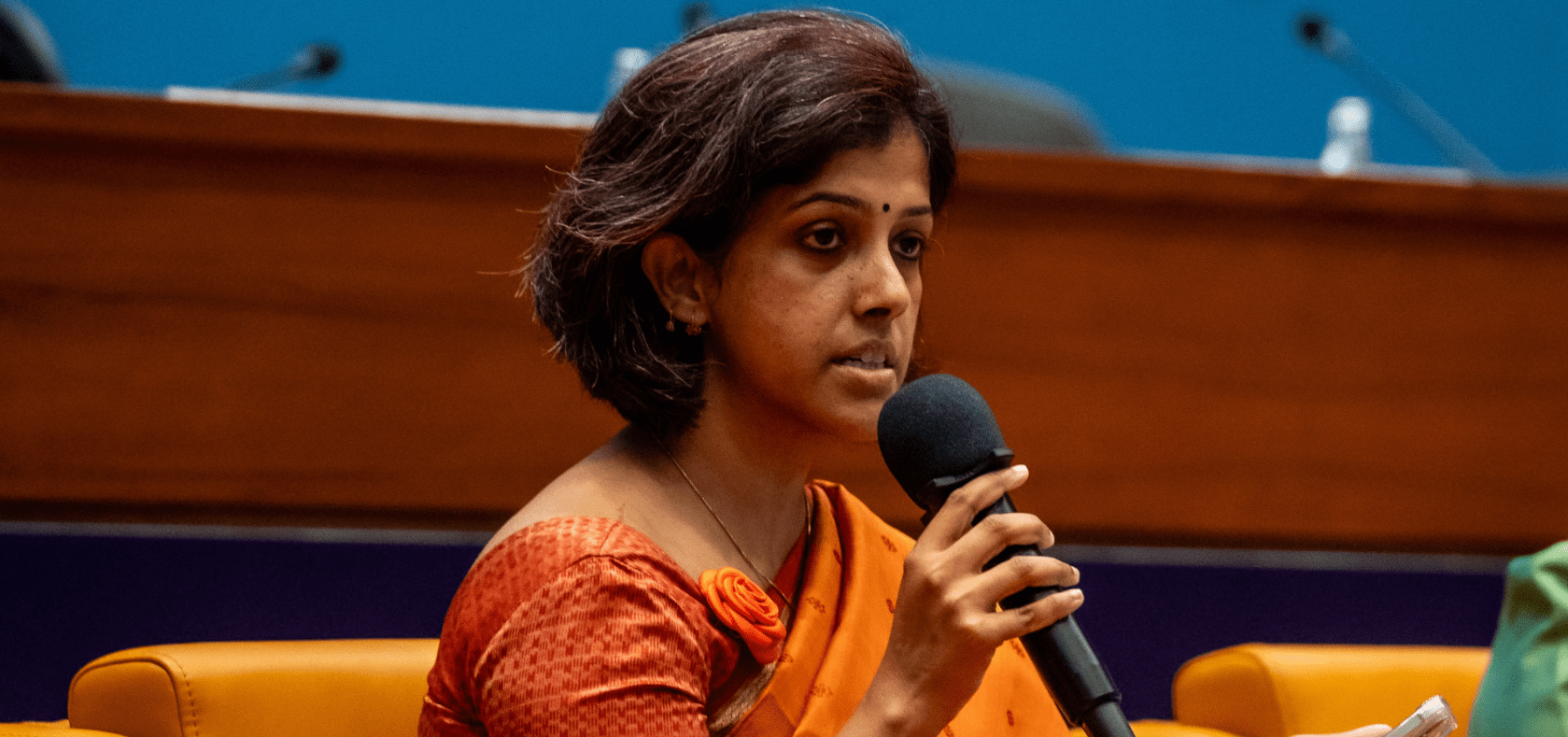Take five: “Only in a discrimination- and violence-free world will young girls and women in all their diversity have the opportunity to dream and fulfil their aspirations”
Date:

Dr. Pritha Chatterjee, Lead of Global Positioning at the non-governmental organization Breakthrough (India), brings over 14 years of experience in gender, social inclusion, and poverty alleviation. With a PhD in social geography, she bridges the gap between societal gender norms and broader global challenges. Her career includes impactful roles at organizations like ActionAid India and a Supreme Court-appointed commission addressing homelessness in Delhi. We spoke to her during the Roundtable: Sustainable Strategies to Respond to and Prevent Violence Against Women and Girls in an Era of Uncertainty, held as part of the Asia-Pacific Ministerial Conference on the Beijing+30 Review. This event also marked the launch of the 2024 16 Days of Activism against Gender-based Violence campaign in Asia and the Pacific.
Can you share how Breakthrough's initiatives with adolescents are shaping gender attitudes and reducing violence against women and girls in communities? What success stories stand out for you?
Gender-based violence (GBV) is deeply rooted in cultural norms. When Breakthrough began addressing GBV in homes, workplaces, and society, we find ourselves up against decades of cultural conditioning and entrenched societal norms. To address this, we focus on creating a generational shift by working with adolescents and young people, particularly those aged 11 to 25. Currently, we work with nearly 1.5 million adolescents in schools and communities to shape gender norms and beliefs before they solidify into behaviors. By fostering aspiration, leadership, agency, and negotiation skills, we aim to enable a shift toward a gender-equal culture.
Breakthrough has been a key player in building regional civil society networks to combat violence against women and girls. Why is this collaboration important, and what unique challenges and opportunities have you observed in this approach?
Guided by the landmark Beijing Declaration and Platform for Action, significant progress has been made through collective efforts for gender equality. However, challenges remain. According to the 2023 Sustainable Development Goals (SDGs) Report, it will take an estimated 300 years to end child marriage, 286 years to close gaps in legal protections and eliminate discriminatory laws, and 140 years for women to achieve equal representation in leadership positions. To push the needle forward, GBV prevention strategies must be intersectional. Collaboration and feminist networks are critical, especially in the Asia region. While national-level action is essential to drive commitments aligned with Beijing and the SDGs, regional partnerships are vital for aligning resources and strategies at scale.
Opportunities arise in global forums like the AWID Forum and the Commission on the Status of Women (CSW), which allow networks to strategize, represent regional voices, and advocate collectively. However, challenges include diminishing funding for feminist networks, language and time zone barriers that complicate coordination.
Based on your experience, what evidence-based strategies are most effective in shifting social norms and preventing violence against women and girls at the community level?
Evidence and experience underscore the importance of women’s leadership at every level—within communities, organizations, institutions, and positions of power. At Breakthrough, we advocate for creating a gender-transformative education system through a whole-school approach. This involves engaging students, teachers, educators, school administrations, and policymakers to create environments where everyone is safe and treated equally, boys are not favoured over girls, girls are not pulled out of school for domestic work, marginalized adolescents are supported, and all young people have the agency to challenge harmful norms. By 2028, we aim to reach 4 million adolescents across 35,000 schools, leveraging systems change pathways for sustainable gender equality outcomes.
How do you see the Beijing+30 process influencing global and regional efforts to address violence against women and girls, and how can civil society contribute to shaping these commitments?
Over the past 30 years, feminist activists and organizations have tirelessly advocated to integrate gender equality into development decisions. The Beijing Platform for Action remains highly relevant, offering a comprehensive framework to achieve gender equality by focusing on 12 critical areas. Civil society organizations play a pivotal role in developing accountability mechanisms, amplifying strategic messaging to advance gender-equitable development, and advocating for feminist policies and gender-transformational approaches with governments and decision-makers. The Beijing+30 process is a key moment to strengthen commitments and mobilize collective action for gender equality and violence prevention at global and regional levels.
As we mark the 16 Days of Activism, what message would you like to share with young people, governments, and civil society to inspire action to end violence against women and girls?
Only in a discrimination- and violence-free world will young girls and women in all their diversity have the opportunity to dream and fulfil their aspirations. Let us act together, in the true spirit of feminist allyship, to turn these dreams into realities for adolescents and young people everywhere.
The Roundtable was co-organized by UN Women and ESCAP, and co-funded by the Australian Government Department of Foreign Affairs and Trade (DFAT) under the UN Joint Programme on Gender-Based Violence Prevention in Southeast Asia (2024-2029), implemented by UN Women and UNFPA.